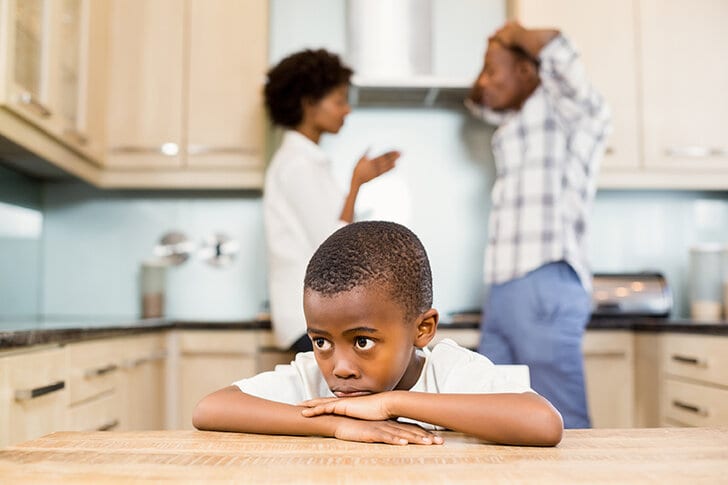
Equal or Substantial – Which Time Division Is Better For Children From Separated Families?

Custody battles are never pleasant. When a couple goes through separation, the children are usually the ones who get impacted the most. In addition to being forced to share their parents’ love, they end up being divided when it comes to spending time with them as well.

Dreamstime | When a couple goes through separation, the children are usually the ones who get impacted the most
In cases of severe disputes, the family court is called upon to decide how much time the child will spend with each parent. More often than not, one of the two strategies – equal time or substantial and significant time – are followed.
But which of these approaches is better? To decide, understanding both approaches is the first step.
Read – Pigdon/Norgate hosts Northern Suburbs Family Lawyers’ end of year function
What does Equal Time mean?
As the name suggests, equal time means that the child can spend 50% of his/her time with one parent and 50% with the other. When the court makes an order that parents have equal shared responsibility, it has to consider the following things:
- Will it be in the best interest of the child?
- Will it be reasonably practical for the child?
If both conditions seem satisfied, the court issues an order for the child to spend equal time with each of the parents. But if any of the above conditions aren’t fulfilled, and yet both parents have equal responsibility, the court issues an order for the child to spend substantial and significant time with each of them.

Yahoo! News | Understanding equal time and substantial time is crucial for an informed decision to be made
What does Substantial & Significant Time mean?
Substantial and significant time means that the child can spend more than 50% of his/her time with one parent and less than 50% with another. When making this decision, the court has to consider the following things:
- The time the child spends with the parent should include the days that fall on weekends or holidays
- It should allow the respective parent to be a part of the kid’s routine activities as well as those occasions that are significant for the kid
- It should allow the child to be involved in the occasions that are significant to the parent.
The catch here is that even when one parent has substantial and significant time over the other, they are equally responsible for their children.
Read – Parenting Orders and COVID-19
Is one approach better than the other?
Actually, no! Each approach has its own pros and cons, and which applies better to which situation depends on several factors.
Before the court orders a decision in favor of equal time or substantial and significant time, it has to ensure that the parents have equal shared responsibility. What this means is that both the parents share the identical responsibility to take major decisions in the child’s life: schooling, religion, their living place, to name a few.

iStock | Each approach has its own pros and cons, and which applies better depends on several factors
To sum it up
Your relationship with your spouse might not have worked that well, but your parenting can still succeed. With proper communication and understanding, you as co-parents can assure a bright future for your children.
More in Family
-
`
How to Keep Your Brain Sharp as You Age
After the age of 40, roughly speaking, our brain begins to lose a step or two. Each year, our reaction time...
July 29, 2025 -
`
How Life in Germany Brought an American Family Closer (But Made Them Homesick)
Family always came first. That is what made the move from Maryland to Germany both exciting and painful for this American...
July 22, 2025 -
`
Angélique Kidjo Becomes First Black African on Hollywood Walk of Fame
Angélique Kidjo just made history. On July 3, 2025, it was announced that Kidjo will be getting her own star on...
July 15, 2025 -
`
Why Smart Window Placement Is the Secret to Aesthetic Home Design
Windows shape how your home looks from the street, how light moves through your space, and how your rooms feel every...
July 8, 2025 -
`
Why Cannabis Use Doubles the Risk of Heart-Related Deaths
Doctors have warned about tobacco for decades, but marijuana is often seen as the safer choice. New research is poking holes...
July 1, 2025 -
`
The Top 5 Best Credit Cards For Family Disney Vacations
A Disney vacation in 2025 is not cheap. Park tickets, hotel stays, meals, and travel can add up fast. But the...
June 24, 2025 -
`
The Surprising Lives of 10 A-List Celebrities Before Fame
Fame changes everything, or so they say. But not everyone flips the switch once the cameras show up. Some stay grounded,...
June 17, 2025 -
`
Trump’s Surgeon General Pick Dr. Casey Means Praises ‘Illegal’ Psychedelic Therapy
Psychedelic therapy just landed at the center of the national health debate, thanks to Donald Trump’s latest pick for surgeon general....
June 3, 2025 -
`
5 U.S. Family Vacation Spots You Should Book ASAP
If you are looking for the best family vacation spots in 2025, skip the guesswork. These five places deliver the fun,...
May 27, 2025















You must be logged in to post a comment Login